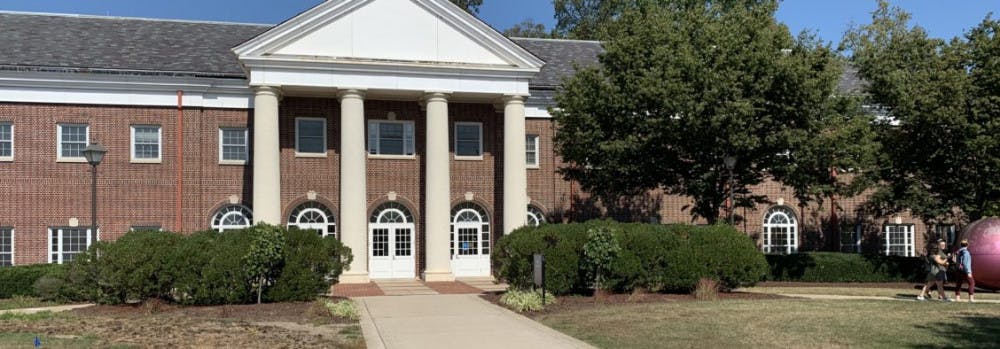By Julia Duggan
Staff Writer
Despite the challenges of online learning this semester, the College’s music department is welcoming four new music professors: professor of music theory Dr. José Beviá, voice professor Steven Eddy, voice professor Mark Moliterno and assistant director of bands Adam Warshafsky. This marks the second time that Moliterno will be teaching at the College.
“I have been very familiar with the TCNJ music department for a long time and have always been incredibly impressed,” said Warshafsky. “Not just by the quality of the music making, but by the quality of the people who work hard at the department. I've always been eager to be a part of it and now have the opportunity to be so that's very exciting.”
Warshafsky has been teaching in Montgomery Public Schools for 18 years and will continue to teach there while also being at the College. During his time there, the Montgomery High School Wind Ensemble performed at Carnegie Hall, the New Jersey Performing Arts Center and several New Jersey Band and Music Educators conferences. Additionally, the band has performed internationally through concert tours in Spain, Germany and the Czech Republic.
The professors are still optimistic for this semester despite the difficulties of teaching music online.
“It has been a challenge for sure, but I am glad that we're doing this,” said Beviá.
In order to properly accommodate his students, Beviá has designed an intricate set-up: he has three different cameras that he switches between, the main one on his laptop and two others positioned so students can see different angles when he is playing the piano. He also has a music notation program so students can accurately follow along with the various assignments.
“He (Beviá) is great, he likes to teach us with the piano,” said Emily Wilson, a sophomore music education major. “He will play a whole excerpt even if it is just two of the chords that connect with what he is teaching us for the lesson. When he plays his songs, he is amazing. He has a degree in composition and performance, so he is an excellent player and shows us how things work. He knows what he is doing.”
Beviá has completed several artists' residencies in France, Sweden and Italy. He has also released two albums and has been commissioned to compose music all over the world. In addition, Beviá has won several awards, including the 2014 Avalon International Competition for Composers in Houston, Texas.
“I think it’s going as well as it possibly can,” said Warshafsky of the virtual semester.
He said that the technology is not advanced enough so musicians cannot play and collaborate in real time as they would in person. The challenge has been figuring out what is the closest way to recreate playing together when technology prevents that. Despite the challenges, the students have had positive reactions.

“They’ve been extremely participatory and kind to each other and kind to me as a newcomer, very welcoming. We’re going to do a lot of amazing things this semester. We will be playing our instruments and growing as musicians and learning about music.”
The students are open to trying different online formats of Concert Band. They are aware that technology impacts the normal structure of class but are still determined to play together.
“With student input and feedback crucial to the running of this class, online Concert Band will be able to fit the needs of virtually every student, regardless of skill,” said Joseph Gibbs, a junior music education major. “He (Warshafsky) is very down-to-earth and I am excited for what the future holds for Concert Band this semester.”
Moliterno has received the 2019 Patrick D. Kenan award for Vocal Health and Wellness from the Duke Voice Care Center. He currently has several studios for yoga therapy and private voice in the Northeast region.
“We still are meeting one-on-one with students and as long as the technology is sufficient for us to hear one another and to listen to one another and to communicate, I think it actually crosses the media (challenge) pretty well,” Moliterno said. “I've been teaching these kinds of online individual sessions for years, so what is different is that now it all has to step up a notch or two. I think the challenge is … the durability in this format.”
Despite the challenges of instructing online, the professors are enthusiastic about the start of the semester. Each has created a different solution to effectively teach their students. Some classes have more than one camera while others rely more on student feedback, but the main themes of the music classes are still present.
“I'm looking forward to getting to know my students and to developing relationships with them, even though we have this (online) barrier between us,” said Moliterno. “I'm looking forward to what I look forward to every day — meeting people, connecting with them and making music.”







